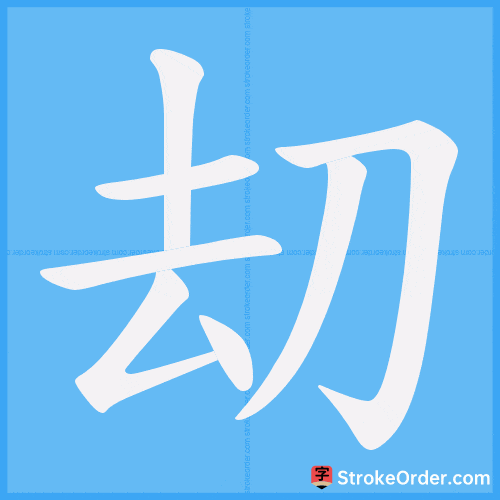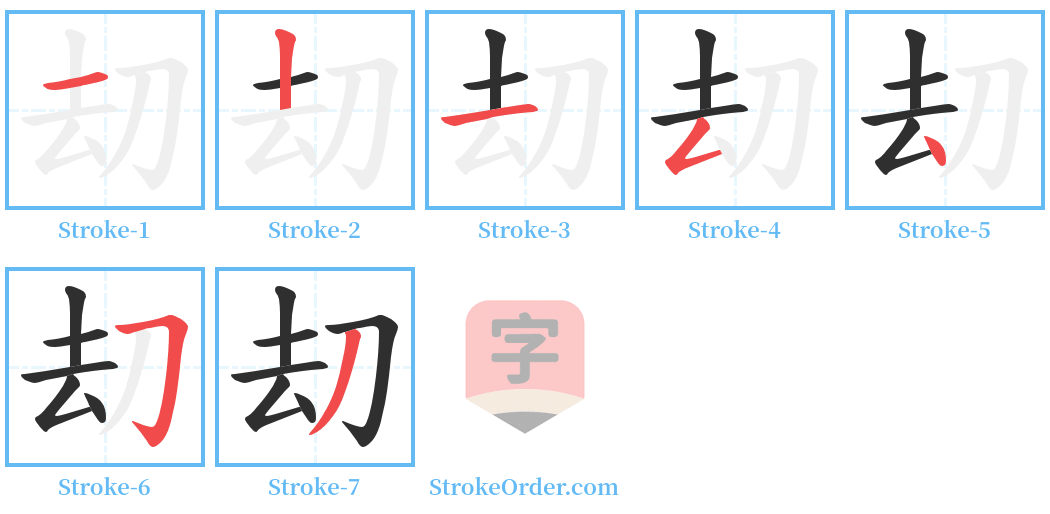刧 Stroke Order
Animated Stroke Order of 刧

Stroke Order Diagrams for 刧

Information of 刧
Pinyin
jié
Radical
刀
Strokes
7 strokes
Usage
★★
Definition
刧
1. Ancient form of "劫" (to rob).
Ancient meaning of "劫": to threaten or coerce. 劫 means that a person wants to leave but is forcibly stopped, thus it is called "劫." This is illustrated in various classical texts:
- "Threaten with a multitude." — from "Liji · Confucian Conduct"
- "Then Min intended to use Qi and Qin to threaten Wei." — from "Strategies of the Warring States · Qin Strategy"
- "Therefore it can be coerced to create ink clouds." — from "Xunzi · Exposing Deception"
- "Cannot be coerced with life and death." — from "Huainanzi · Spirits"
- "Thus relying on threats." — from "Book of Han · Chronicle of Emperor Gao."
- "Accumulated threats to coerce." — from "Song · Su Xun’s Six Kingdoms Discourse."
- This concept gives rise to terms such as: 劫杀 (kidnapping and then killing), 劫略 (coercing others with force), 劫盟 (forcing someone to conclude an alliance through violence), 劫质 (taking hostages to extort).
2. To seize; to forcibly take.
- "To desire to forcefully take life, must first obtain an agreement to repay the Crown Prince." — from "Strategies of the Warring States · Yan Strategy."
- "To plot to seize the mother of the Chanyu." — from "Book of Han · Biography of Li Guang and Su Jian."
- "Those who resort to kidnapping." — from "Tang · Liu Zongyuan’s Biography of Tongquji."